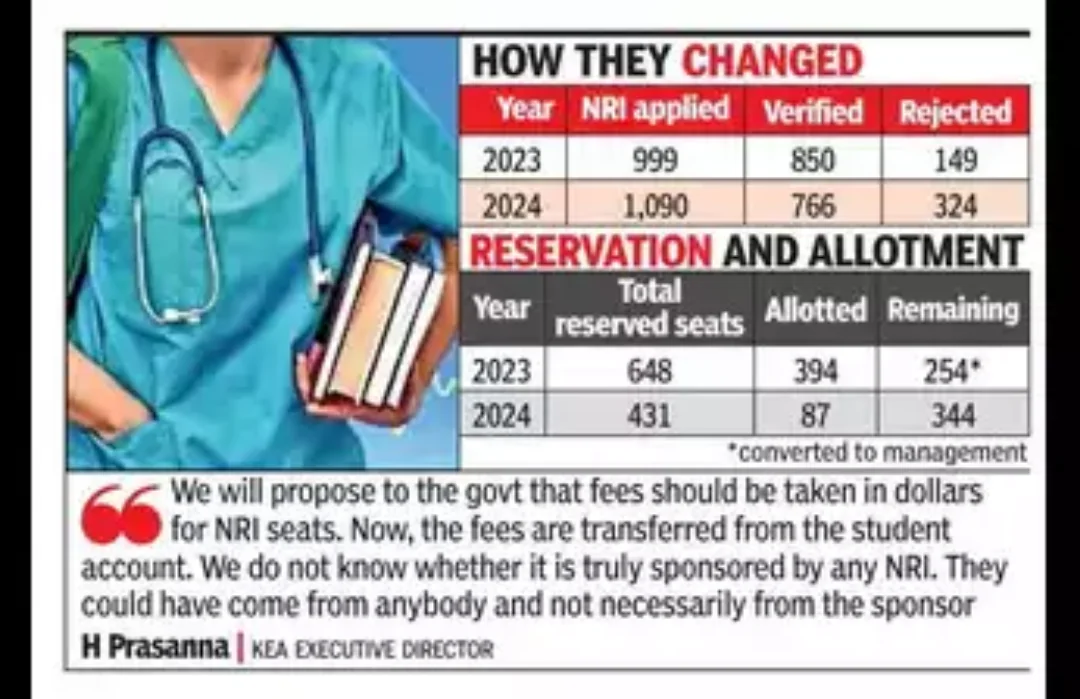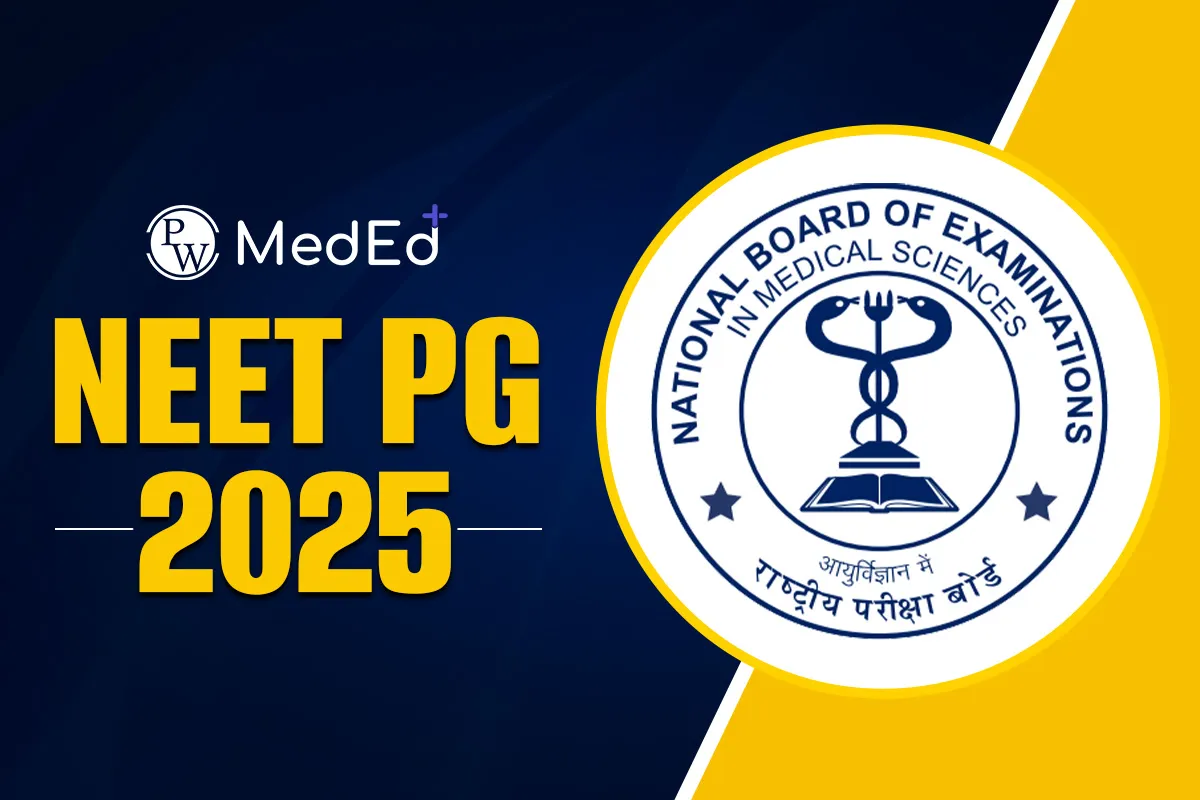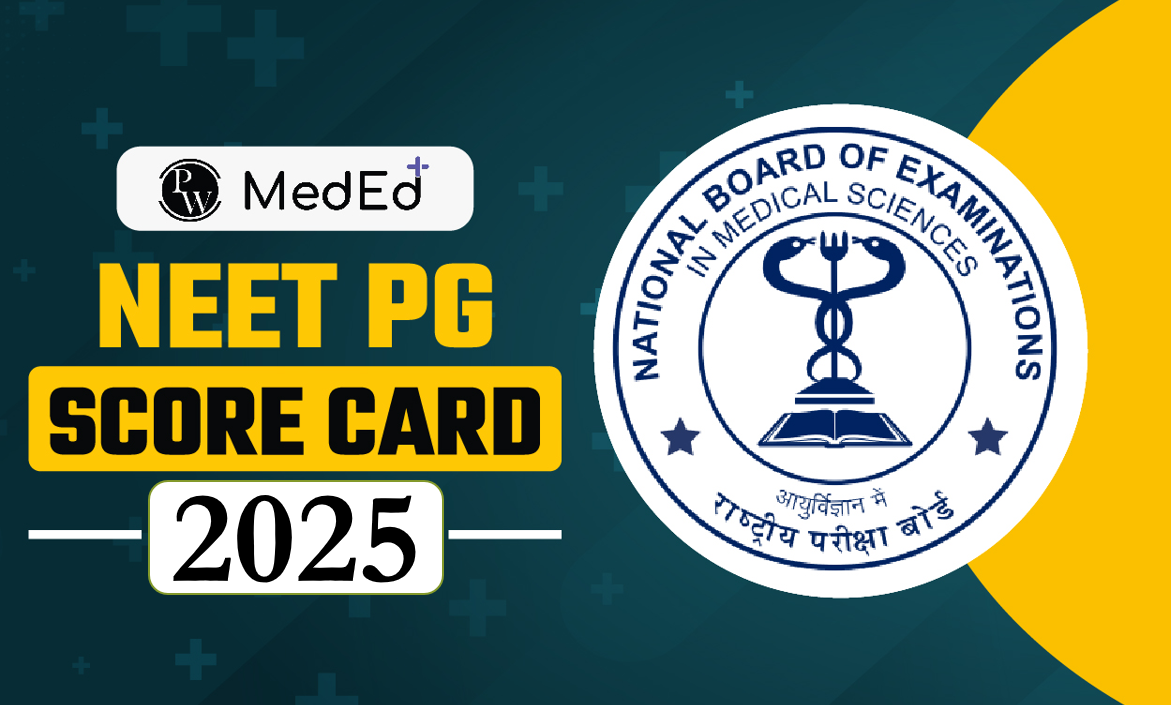
NEET PG 2024 NRI Quota Application Rejection Doubled From Last Year: The Karnataka Examinations Authority (KEA) has rejected 324 applications for the NRI (Non-Resident Indian) quota in NEET PG 2024 admissions, marking a sharp increase compared to last year. The number of rejections has more than doubled from the 149 applications rejected in 2023.
As the NEET PG 2024-25 admission process nears completion, a detailed analysis reveals that KEA received 1,090 applications for NRI quota seats this year, an increase of 91 applications compared to 2023. Out of these, only 766 were approved, while 324 faced rejection. In contrast, 850 applications were approved last year, with only 149 being rejected.
Download– MedEd App
NEET PG 2024 NRI Quota Application Rejection Doubled From Last Year : Overview
The Karnataka Examinations Authority (KEA) has rejected 324 NRI quota applications for NEET PG 2024, more than doubling the rejections from 2023. The rise in rejections is due to a stricter verification process following reports of fraudulent NRI seat allotments. Additionally, a significant increase in unfilled seats and changes in NRI quota seat reservation trends have affected admissions. KEA has also proposed a change to the NRI fee payment system to ensure greater transparency in sponsorship.
Reasons Behind the Surge in Rejections
The higher rejection rate this year is attributed to the rigorous verification process adopted by KEA following reports of fraudulent NRI seat allotments in Tamil Nadu. In a similar case last year, Tamil Nadu’s Directorate of Medical Education found that at least 44 doctors had submitted fake certificates to claim NRI sponsorship for PG medical courses.
Candidates applying under the NRI quota must establish a legitimate blood relationship with their financial sponsor. According to Supreme Court rulings, the sponsor must be a first-degree relative, such as a parent or sibling. However, KEA found that several applications listed distant relatives as sponsors, leading to immediate disqualification.
“We noticed a large number of applicants claiming sponsorship from distant relatives, which is not permissible under the Supreme Court’s guidelines. To verify authenticity, we also reached out to multiple embassies to confirm the validity of the submitted documents, but we are yet to receive any official responses,” said H Prasanna, KEA Executive Director.
NRI Quota Seat Reservation and Allotment Trends
In addition to increased scrutiny, the overall reservation and allotment for NRI seats have also changed. Data shows that:
- In 2023, 648 seats were reserved under the NRI quota, out of which 394 were allotted, leaving 254 seats unfilled (later converted to management quota).
- In 2024, the total reserved seats for NRIs dropped to 431, but only 87 were allotted, leaving 344 seats vacant, marking a significant rise in unfilled seats.

Proposal to Modify NRI Fee Payments
Given the ongoing issues, KEA has proposed a modification in the NRI quota fee payment system. Currently, the fees are transferred from the student’s bank account, raising concerns over whether the funds truly come from an NRI sponsor. KEA has suggested that the government implement a system where fees must be paid in US dollars directly by the sponsor to enhance transparency.
“We will propose to the government that fees for NRI seats should be collected in US dollars to ensure genuine sponsorship. Right now, the payments come from the student’s account, making it difficult to verify whether an actual NRI is funding them or if the money is coming from other sources,” Prasanna added.
Impact on NEET PG 2024 Admissions
With stricter scrutiny and reduced seat allotment, many aspirants who sought admission through the NRI quota are left with limited options. The rise in rejection rates and unfilled seats may push students to seek alternative admission pathways or opt for management quota seats.
As KEA continues to strengthen its verification process, prospective NRI quota applicants must ensure compliance with eligibility criteria to avoid rejection. With the possibility of stricter fee regulations in the future, the landscape of NRI medical admissions in Karnataka could see further changes in the coming years.
Get ready to ace the Medical exam for the dedicated career in medicine. Download the PW Med Ed app now!












